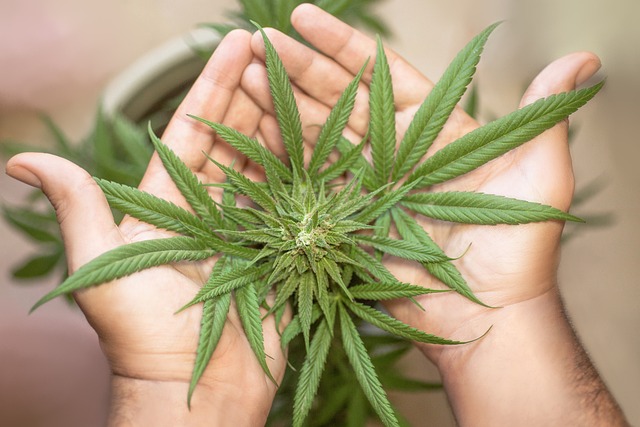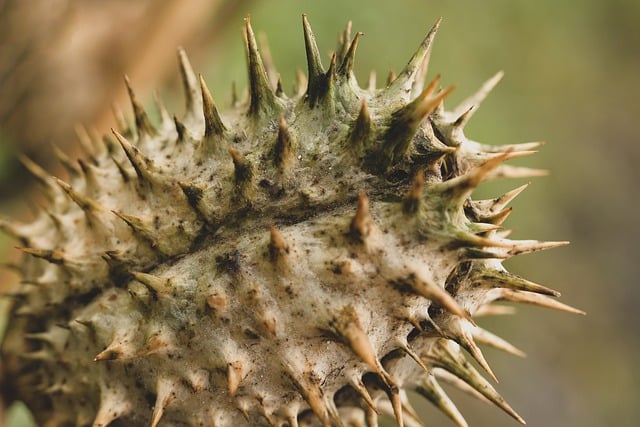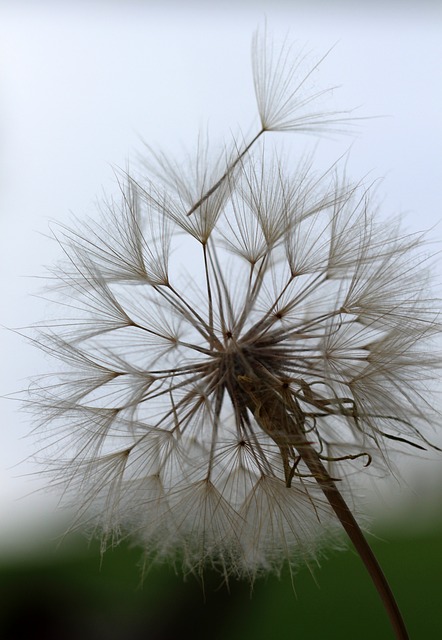THCA (Tetrahydrocannabinolic Acid), a non-psychoactive compound found in cannabis and the precursor to THC, has garnered attention for its potential therapeutic effects, including anti-inflammatory, anti-nausea, and analgesic properties. However, despite its medicinal promise, THCA's legal status is complex, particularly in Idaho, where all forms of cannabis, including THCA, are strictly prohibited for both medical and recreational use due to the state's conservative stance on cannabis. This legal distinction is crucial for individuals in or traveling to Idaho, as possession, sale, and use of THCA-rich products are illegal there. It's important for consumers to be aware of the evolving legal landscape surrounding THCA, especially given its potential conversion into THC, which is heavily regulated by Idaho laws. As of now, 'THCA legal in Idaho' remains a topic that requires careful consideration of state regulations and may be subject to future changes. Users are advised to review local laws and seek legal counsel to ensure compliance with all applicable statutes regarding cannabis-related substances.
Explore the nuanced world of THCA, a non-psychoactive cannabinoid found in the raw form of cannabis that is gaining attention for its potential health benefits and unique legal standing in places like Idaho. This comprehensive article delves into the multifaceted aspects of THCA flower, from its scientific properties to the legal intricacies surrounding its use. We’ll guide you through understanding THCA, differentiating it from other cannabinoids, and exploring the entourage effect when used in conjunction with other compounds. We’ll also provide insights into the cultivation of THCA-rich flowers, optimal consumption methods, and the transformative process of decarboxylation that activates its psychoactive cousin, THC. As we navigate the legal landscape of THCA in Idaho, we’ll discuss retail regulations and accessibility, ensuring you have a clear understanding of its status there. Additionally, user experiences offer personal anecdotes that provide context to the potential therapeutic properties of THCA flower. This article is designed to inform and empower, whether you’re a novice or an experienced cannabis enthusiast.
- Understanding THCA: The Raw Potential of Cannabis
- THCA Flower: What Sets It Apart from Other Cannabinoids
- Legal Landscape of THCA in Idaho: A Closer Look
Understanding THCA: The Raw Potential of Cannabis

THCA, or tetrahydrocannabinolic acid, is the precursor to THC, the psychoactive compound found in cannabis that is well-known for its intoxicating effects. As a non-psychoactive acidic form of THC, THCA has garnered attention for its potential therapeutic benefits and is a subject of growing interest within the scientific community. Initial research suggests that THCA may offer anti-inflammatory, anti-nausea, anti-emetic, and analgesic properties without the psychoactive effects associated with THC once it has been decarboxylated through heating. This makes THCA a compelling subject of study for those interested in cannabis’s medicinal applications.
In the context of legal considerations, the status of THCA-rich products varies across different states in the U.S., including Idaho. While some states have comprehensive medical and recreational cannabis programs, Idaho maintains a conservative stance on cannabis-related substances. It’s important to note the legality of possessing, selling, or using THCA-rich products within Idaho’s jurisdiction. As of the knowledge cutoff date, Idaho laws prohibit the possession and sale of cannabis and its derivatives, including THCA, for both medicinal and recreational purposes. Therefore, while the interest in THCA’s potential benefits continues to grow, those residing in or visiting Idaho must be aware of the state’s strict regulations regarding such substances. Users are advised to consult local laws and regulations before engaging with any cannabis-related products to ensure compliance with state and federal statutes.
THCA Flower: What Sets It Apart from Other Cannabinoids

THCA, or Tetrahydrocannabinolic Acid, is a naturally occurring cannabinoid found in the Cannabis sativa plant. Unlike its more famous counterpart, THC (Tetrahydrocannabinol), THCA is non-psychoactive, meaning it does not produce the ‘high’ associated with cannabis consumption. This distinguishes THCA from other intoxicating cannabinoids and opens up unique possibilities for its use in various applications. THCA is precursor to THC, and when exposed to heat or light, it can decarboxylate into THC, which is legal in some states, including Idaho, under certain conditions.
The legality of THCA itself can vary, and it’s crucial for consumers to understand the distinctions between cannabinoids within their jurisdiction. In Idaho, for instance, while THC is restricted and only legal under specific state-approved programs, the status of THCA is less clear. This is because THCA must be converted into THC to produce psychoactive effects, which are not permitted by state laws outside of these programs. As a result, products containing raw THCA flower that is non-psychoactive can sometimes be legally sold and consumed, providing users with the potential benefits associated with cannabinoids without the psychotropic influence. This legal nuance makes THCA an attractive option for those seeking wellness benefits derived from hemp-derived compounds in compliance with local laws, such as those in Idaho.
Legal Landscape of THCA in Idaho: A Closer Look

THCA, or tetrahydrocannabinolic acid, is a non-psychoactive cannabinoid found in the cannabis plant that serves as the precursor to THC, its psychoactive counterpart. As of the latest legal updates, the legal status of THCA in Idaho presents a complex picture. While Idaho statutes explicitly prohibit the possession, use, and distribution of marijuana and its derivatives, including Delta-9 THC, the clarity regarding THCA is less straightforward. The state’s laws focus primarily on Delta-9 THC, leaving certain questions about THCA’s legal standing unanswered. This ambiguity has led to debates among legal experts and law enforcement officers. In essence, while THCA itself does not possess psychoactive properties, its conversion to THC under heat or decarboxylation makes its legality in Idaho a matter of ongoing interpretation and potential legal challenge. It is crucial for anyone considering the use, possession, or distribution of THCA products within Idaho to be well-informed about the evolving legal landscape and to consult with legal counsel familiar with state laws regarding cannabinoids. The legal landmarks set forth in Idaho legislation serve as a reminder that the distinction between different cannabinoids can carry significant legal implications. As such, the situation regarding THCA in Idaho is one that requires careful attention and understanding of both current law and potential future developments.
THCA, or tetrahydrocannabinolic acid, presents a compelling focus within the cannabis discourse. Its potential, when considering the raw, unaltered form found in THCA flower, offers a distinct perspective compared to other cannabinoids. As explored in this article, understanding THCA’s properties is crucial for both medical and recreational users, particularly those in regions with evolving legal landscapes such as Idaho. The legal status of THCA in Idaho remains nuanced, and it underscores the importance of staying informed on state regulations. As the legal landscape continues to shift, enthusiasts and professionals alike will find the discussion around THCA flower increasingly relevant. With a clearer understanding of its unique characteristics and legal standing, users can make informed decisions that align with their needs and comply with local laws.
